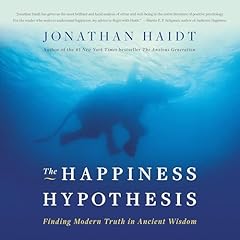
Conscience
The Origins of Moral Intuition
No se pudo agregar al carrito
Add to Cart failed.
Error al Agregar a Lista de Deseos.
Error al eliminar de la lista de deseos.
Error al añadir a tu biblioteca
Error al seguir el podcast
Error al dejar de seguir el podcast
 Exclusivo para miembros Prime: ¿Nuevo en Audible? Obtén 2 audiolibros gratis con tu prueba.
Exclusivo para miembros Prime: ¿Nuevo en Audible? Obtén 2 audiolibros gratis con tu prueba.Compra ahora por $18.18
-
Narrado por:
-
Suzie Althens
In Conscience, Patricia S. Churchland, the distinguished founder of neurophilosophy, explores how moral systems arise from our physical selves in combination with environmental demands.
All social groups have ideals for behavior, even though ethics vary among different cultures and among individuals within each culture. In trying to understand why, Churchland brings together an understanding of the influences of nature and nurture. She looks to evolution to elucidate how, from birth, our brains are configured to form bonds, to cooperate, and to care. Conscience delves into scientific studies, particularly the fascinating work on twins, to deepen our understanding of whether people have a predisposition to embrace specific ethical stands. Research on psychopaths illuminates the knowledge about those who abide by no moral system and the explanations science gives for these disturbing individuals.
Churchland then turns to philosophy - that of Socrates, Aquinas, and contemporary thinkers like Owen Flanagan - to explore why morality is central to all societies, how it is transmitted through the generations, and why different cultures live by different morals. Her unparalleled ability to join ideas rarely put into dialogue brings light to a subject that speaks to the meaning of being human.
©2019 Patricia S. Churchland (P)2019 TantorLos oyentes también disfrutaron:




















Las personas que vieron esto también vieron:



Made me think
Se ha producido un error. Vuelve a intentarlo dentro de unos minutos.
Started out well
Se ha producido un error. Vuelve a intentarlo dentro de unos minutos.
nails on chalkboard fans!!!!.....
Se ha producido un error. Vuelve a intentarlo dentro de unos minutos.


